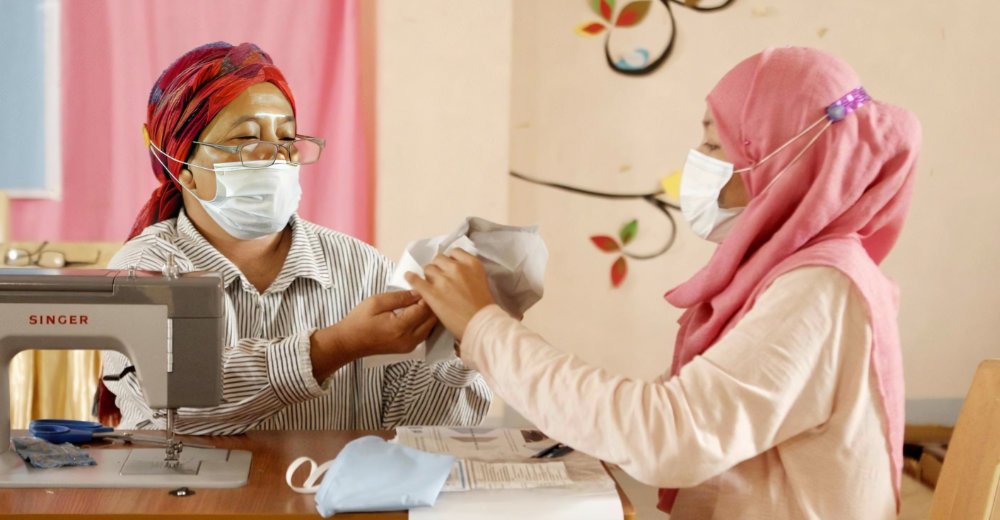MANILA: Equipped with sewing machines, simple agricultural tools, and a will to contribute to the community, women in Bangsamoro have been joining together to lift from poverty one of the poorest regions of the southern Philippines, where armed conflict has for decades hampered development.
Bangsamoro is the only Muslim-majority territory in the predominantly Christian Philippines. After four decades of separatist struggle, which took the lives of over 150,000 Filipino citizens, the region since 2014 has been the centerpiece of a peace process, under which fighters agreed to turn over their firearms in exchange for self-administration.
The Bangsamoro Autonomous Region in Muslim Mindanao was formed in 2019 and its transition to autonomy will culminate in 2025, when it will elect its legislature and executive.
Part of the process is development — long overdue in the region that is home to some 4.7 million people, where the poverty incidence rate is 63 percent, according to the United Nations Population Fund.
The empowerment of women is recognized as key in uplifting the community and one of the initiatives undertaken for economic empowerment is through cooperatives.
They allow women to organize for joint activities such as agriculture, weaving, and other crafts. Some of their products are sold on the market to keep their organizations running, while they retain a portion.
For Raga Tarotawan, 64, who heads the Women Sector Agricultural Cooperative in South Barira municipality in the BARMM province of Maguindanao, participation supports her family, but also allows her to give back to her community.
“We want to be productive to show that we can also contribute something to the community,” she said. “We don’t have a job but still we want to show we can still be productive.”
Tarotawan’s cooperative was established in 2019, and has since gained over 1,000 members, who grow fruits, vegetables and chilies.
There are about 500 women’s organizations like this in BARMM, according to Bangsamoro Transition Authority data, and there used to be many more but authorities say there are challenges in making them sustainable as many fail when external funding runs out.
“Because of the conflict, they developed a culture of dependency,” Dr. Susana Salvador Anayatin, member of the Bangsamoro Transition Authority, told Arab News. “They are not really sustainable.”
The matter of keeping women’s business initiatives afloat is what has come to the attention of foreign donors.
Among them is a new program by the French government to help streamline their operations.
“It’s a project with a level of financing of EUR530,000 ($533,325),” Michele Boccoz, the French ambassador to the Philippines, said. “We’re looking at these areas where we can bring some experience and some expertise.”
She recognized the potential of women’s cooperatives for post-conflict community development.
“If women are empowered and they have economic power they can create resources, then they would immediately focus on their families,” Boccoz told Arab News.
“You have all these decommissioned combatants and if you really want to make the peace process a success, you have to anchor them, give them the capacity to build their lives, to have good jobs, to be able to raise their kids, to be able to develop their businesses, and to be active citizens participating in society.”




